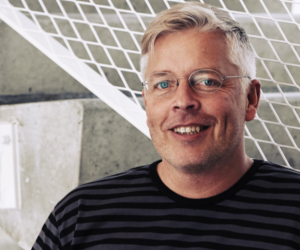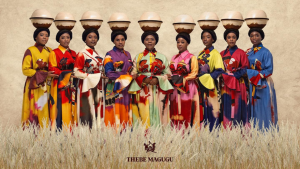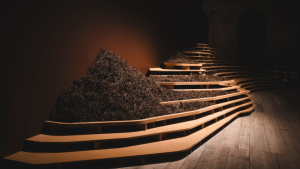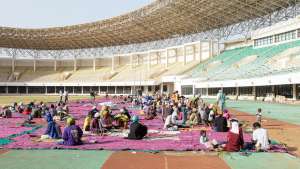Jesper Brodin, the CEO of IKEA range and supply in Sweden, and Marcus Engman, the head of design at IKEA, take to the Design Indaba Conference stage to share their take on the beginnings of the company’s collaboration with Design Indaba. The two industry heads are interviewed by Kojo Baffoe, one of the conference MCs, who asks them about their perspective on the creative culture of Africa as well as their open-minded approach to create the exclusive range of African-inspired designs.
According to Engman, he and his colleagues had been keeping an eye on the distinct creativity issuing from a number of African countries for some time. From music, film and fashion to architecture and engineering – Engman’s interest in collaboration had been roused, but it was only after a fortuitous meeting with Design Indaba founder Ravi Naidoo at a design forum discussing solutions for the refugee crisis in Amsterdam, that a partnership between the companies would spark to life.
Brodin elaborates on the eternal struggle faced by many designers and creative companies to uphold design integrity while staying profitable. As a core tenet of IKEA, Brodin explains that the question of creating authentic, thematic and durable designs must be balanced with reaching as wide a consumer base as possible, since one so often one extinguishes the other. When creating a chair, for example, one must push the design to reach more than one goal – to be comfortable, beautiful, can withstand the wear and tear of daily use, is made in a sustanable way and on top of that, must be affordable for regular people.
“From a vision perspective, we aim for the many people with thin wallets and big dreams,” says Brodin, “For us to make something beautiful but costly, is a failure. Instead, we use a formula called ‘democratic design’.”
On describing the open-source IKEA House that was installed at the Design Indaba Festival, Engman says it served as a hub of ideas to reflect the company’s “democratic design” approach. Festival-goers were invited to step inside the workshop, see the designers develop their projects together and offer feedback in an open, collaborative environment.
These designs will ultimately form part of IKEA’s range of African-inspired designs for the home, which is slated for release in 2019. Engman says the products will vary greatly, as the the collection will include everything from a small padlock to an actual open-source housing unit.









